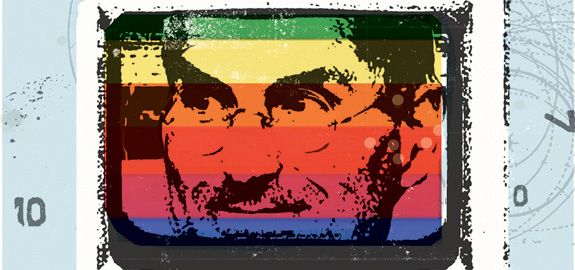Nolan Bushnell, co-founder of Atari and Jobs’ first boss, tells Inc. what not to do in a job interview if you want to hire creative talent.
Back in 1974, Steve Jobs didn’t look like your typical successful job applicant: a 19-year-old college dropout, with a tenuous commitment to basic hygiene, he was more than a little rough around the edges.
Most employers would have sent him packing. Not Nolan Bushnell. Co-founder of video game pioneer Atari, Bushnell was able to get past Jobs’ unconventional aesthetic and find the creative genius. He hired Jobs (gaining the notable title of Jobs’ first boss) and the two remained in touch until Jobs’ death in 2011.
In his new book, Finding the Next Steve Jobs – How to Find, Hire, Keep and Nurture Creative Talent, Bushnell gives advice on how to run a company that attracts (and hires) innovators like Jobs. Outside Silicon Valley, Bushnell sees corporate America as a hostile place for the future Jobses of the world.
So why are innovators like Jobs shown the door? Bushnell tells Inc. what not to do if you want to hire creative talent.
Don’t Enforce Uniformity
Bushnell is exasperated by a hiring-process that punishes applicants for not adhering to the “business casual” look favored by corporate America. Why, Bushnell wonders, are tattoos/piercings/dyed hair so feared by HR departments? “A lot of what is wrong with corporate America has to do with a culture filled with antibodies trained to expel anything different,” Bushnell told Inc. “HR departments often want cookie cutter employees, which inevitably results in cookie cutter solutions.”
Don’t Get Too Hung-Up on Credentials
Bushnell believes that by requiring applicants to have a degree, companies are missing out on a lot of talented, innovative individuals. “Steve,” he laughed, “only completed one semester of college! You can’t say it held him back much…”
Again and again, he sees companies over-emphasizing a laundry list of qualifications and, as a result, losing out on a great pool of individuals, who may not fit every single criterion, but who could inject needed enthusiasm and creativity into the position. “Hire for passion and intensity; there is training for everything else.” Some of the best projects to come out of Atari, he claims, were from high-school and college drop-outs.
Don’t Be Overly Serious
Job interviews can be playful – in fact, Bushnell recommends it. He famously advertised job openings at Atari with taglines like, “Work harder at having fun than ever before,” and “Play games, make games, earn coins.”
“A good interviewer is able to ferret out what the applicant is really passionate about,” Bushnell said. Formal job interviews, he finds, are great at masking exactly that. Instead, he encourages employers to engage applicants in casual conversation. “Ask them what they do for fun, what they’re reading, try and find out if they have a life outside of work.” At Atari, “I’d wait for them to light up about something. It could be anything, but if I didn’t see the light, it was usually a pass for me.”


